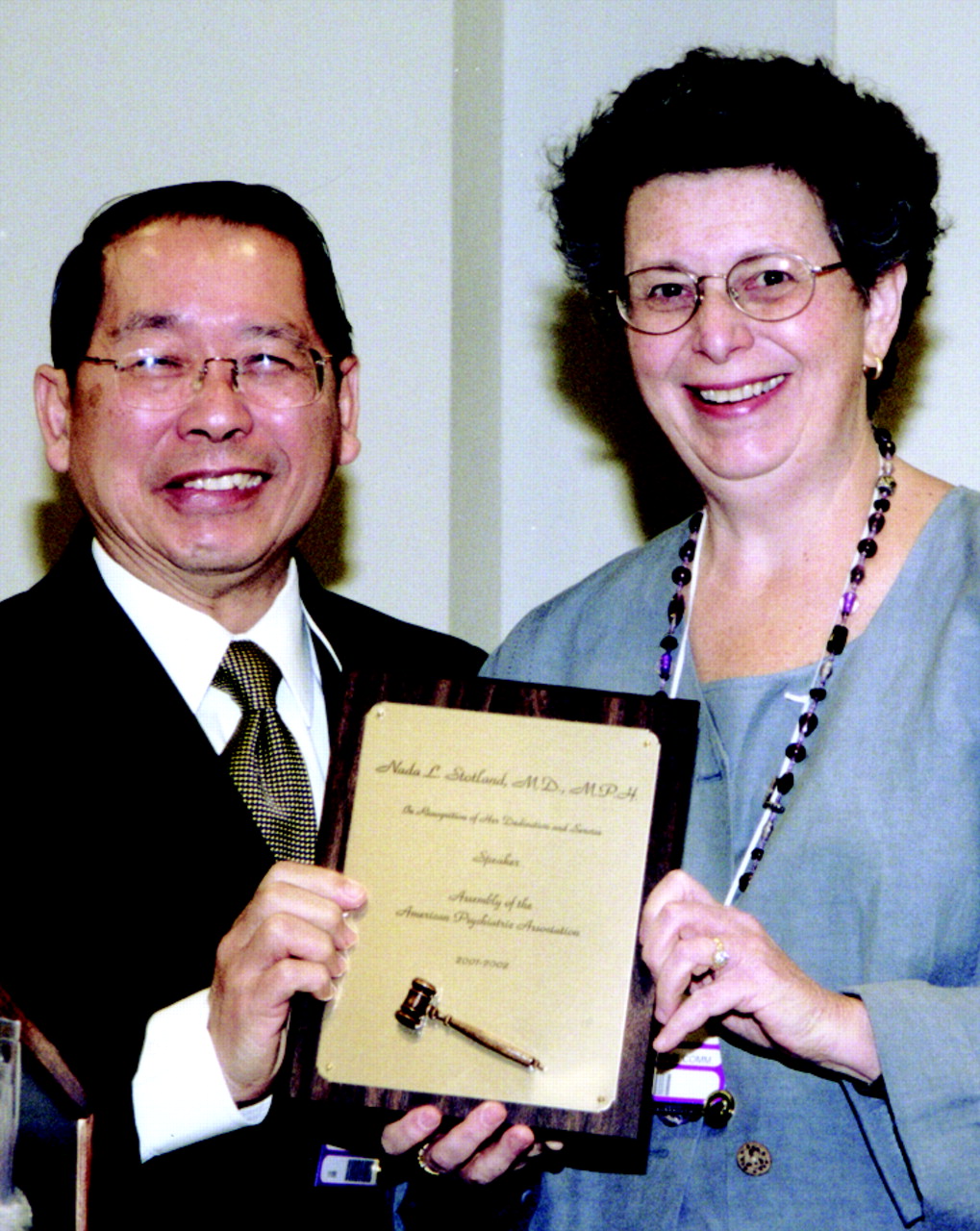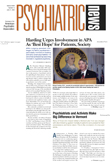What’s in a name? When that name is the American Psychiatric Association, apparently quite a lot. Faced with the opportunity to go on record in favor of changing the organization’s name to the American Psychiatric Medical Association, APA Assembly members reacted to the proposal with an overwhelming thumbs down.
The name-change idea was encapsulated in an action paper introduced by the four representatives of the Southern California Psychiatric Society and endorsed by the Area 6 Council. The authors maintained that large segments of the American public and many state and federal legislators are unable to differentiate between psychiatrists and psychologists. Adding the word medical to APA’s name would go a long way toward making it clear that psychiatrists are the ones who have received medical training. The authors wanted the name change to be the focal point of a large public information effort to educate people about the unique skills of psychiatrists.
Rebranding APA by adding “medical” to its name was a proposal that President-elect Marcia Goin, M.D., had made in her campaign in this year’s APA election. At the Assembly meeting Goin explained that the name change would be “one part of a major endeavor to educate patients and our medical colleagues” that psychiatrists have completed four years of medical school and four more years of specialty medical training.
Deborah Cross, M.D., of the New York State Capital District Branch, said, however, that “no matter how much [APA] states ‘medical’ in [its] name, it will take grass-roots discussions to educate people” about what psychiatrists are trained to do.
The authors estimated that changing APA’s name would cost the Association between $350,000 and $600,000, but others thought the expense would be considerably higher once all the legal costs and publication changes were factored in.
New Mexico Fallout
Assembly representatives also grappled with several proposals that arose in large part from the new law in New Mexico granting psychologists independent prescribing privileges.
The members were asked to pass an action paper calling on APA to examine the role of the New Mexico Medical Society (NMMS) in the passage of the psychologist-prescribing legislation. The paper noted that the NMMS was “instrumental in negotiating a compromise version of the bill, apparently without input from” APA, the New Mexico district branch, the AMA, or the New Mexico Academy of Family Physicians.
The paper’s authors eventually amended their proposal so that instead of asking APA to investigate the situation, they asked the Assembly to go on record in support of a resolution that APA’s delegates to the AMA are introducing at the AMA House of Delegates meeting this month. The resolution calls on the AMA to “investigate the facts” that led up to the passage of the psychologist-prescribing bill, analyze what the New Mexico law will mean for similar bills in other states, develop strategies for opposing future legislative efforts in this area, and “develop a mechanism to resolve future policy and/or strategic differences between” the AMA and members of its federation of state medical societies “to achieve compliance with established AMA policy opposing psychologists prescribing. . . .”
Investigating Harm
Another action paper—one that elicited impassioned debate—wanted APA to develop a mechanism for gathering and reporting data on patients who suffer harm “related to psychologist prescribing in New Mexico.” Albert Vogel, M.D., a New Mexico psychiatrist and APA’s Area 7 trustee, said that the state’s Board of Medical Examiners is concerned about patient safety and intends to gather information about psychologist prescribing. The Assembly defeated the proposal.
Other Actions
In other actions Assembly members voted to
• ask each APA district branch and state association to assign a high priority to developing a plan for recruiting new members. Strategies might include inviting nonmember psychiatrists to district branch meetings, CME activities, and social gatherings; local “dues-abatement” plans for new members who are in the early years of practice; and outreach to psychiatrists in public facilities, VA hospitals, and community mental health centers.
• have APA endorse a statement expressing dismay about the number of psychiatric facilities and services that have shut their doors in the last few years, in particular closings enacted by the Charter Behavioral Health System hospital chain. Such a statement would focus on “the consequences for patients, their families, [and} local communities [and] the impact on staff who have often given years of dedicated service.”
• reject a proposal to change APA election procedures and rules. The defeated action paper called for creating the option of uncontested elections, not allowing campaign letters that members write on behalf of candidates, and limiting candidates’ campaign-speech opportunities to November Area Council meetings.
• recommend a new election policy to allow district branches and state associations to set their own rules concerning whether to allow their list serves to be forums for members to post their views on candidates for APA office.
• have APA establish guidelines for members and staff who identify themselves in an APA capacity when writing articles for commercial publications. Guidelines should include a requirement that a disclaimer of endorsement of any commercial product appear along with the article. This proposal, which passed on a close vote, stemmed from controversy surrounding an educational article about depression by APA Medical Director Steven Mirin, M.D., because it appeared in an advertising supplement in Newsweek that was paid for by a drug company that makes an antidepressant.
While several representatives said they heard complaints about the article’s placement close to a prominent ad, most of them agreed that on balance the educational benefit to the public outweighs reasons that APA leaders should decline to write such pieces.
• recommend to the Board of Trustees that it consider setting a limit on the next medical director’s compensation package of $350,000 annually and that approval by both the Board and Assembly should be required before changes to that package can be made. APA is conducting a search for a new medical director, with the goal of having that position filled by the start of 2002.
• have APA promote telepsychiatry as a vehicle for enhancing and expanding access to psychiatric care in rural and other psychiatrically underserved areas.
• explore the feasibility of “compiling, updating, and publicizing information about the supply of and demand for mental health providers in underserved areas.” This effort would also gather data on the availability of “prescribing psychiatrists and primary care providers” in each state and on the “geographic distribution of psychologists [with] doctoral degrees” within states.
• encourage APA’s delegates to the AMA to ask the AMA to study a proposal for a system of “five-year medical savings account trusts with catastrophic health insurance and partial financing through tax credits.” Some physicians and others view medical savings accounts as a potentially popular alternative to traditional insurance indemnity plans and HMOs.
The Assembly actions require Board approval before they go into effect.
A summary of all the actions take by the Assembly last month is posted on the Web at www.psych.org/downloads/DraftSummaryofActions4.doc. ▪

